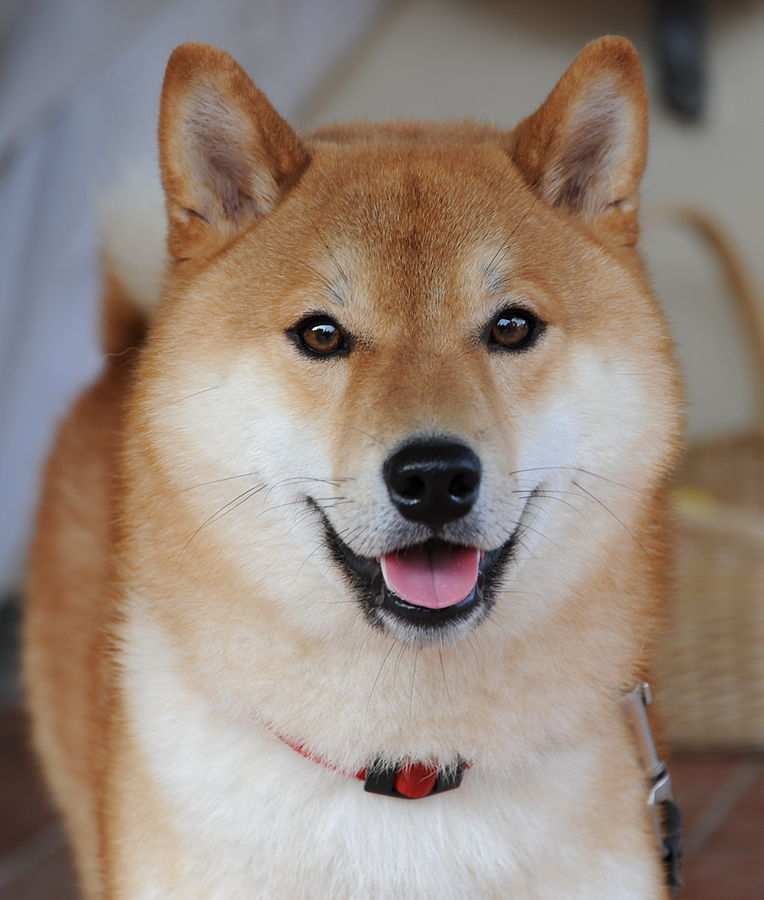The Shiba Inu is a very old hunting breed from Japan. In order to hunt, they needed to be smart yet independent and able to make their own decisions. These traits can make them stubborn, and as such they are not recommended for first-time dog owners. Novice owners often find that they have gotten in over their heads when they realize that their Shiba is a master escape-artist and excellent manipulator. Owners of this breed should have lots of patience, as well as previous experience with putting rules and boundaries into place. They also realize that these are not lap dogs, nor are they push-button obedience dogs – they are independent, mischievous spitz dogs with hunting in their blood.
With owners that know what they are doing, Shibas can make fine companion dogs and even do well in families (with children over toddler age). They are sturdy indoor/outdoor dogs and don’t tend to get hurt easily. As such they love to race around the yard and go on excursions with the rest of the family. These lively, fun-loving dogs also boast long life spans. Regular exercise is important to make sure they stay fit and healthy – despite thier small size, Shibas make great jogging companions. Just keep in mind that this little spitz breed must always be on leash or in a safely fenced area when exercising.
The Shiba Inu is a proud dog, and many act as though they are superior to other dogs – or even their owners! Males in particular have a certain macho characteristic to them. The breed is very bold and courageous but should never be outright aggressive. This said, under-trained Shibas can develop possessiveness issues so it is important to work with them while they are young and get them used to having “their stuff” taken away and given back. When raised well, adult Shibas are gentle and careful in their movements as though they have already planned out each move. They tend to do just fine left at home when their owners go to work. Puppies, on the other hand, are little fireballs of destructive energy! Crate training is absolutely recommended.
Many Shibas have a hard time “playing nice” with other dogs, and dog-to-dog aggression is unfortunately a common issue. This is particularly true with multiple intact males. In some litters of young puppies, one can even pick out which pups are less about play and more about starting fights! Knowing the breeding behind the lines can help an owner choose a puppy who will be more likely to get along with other dogs, and early socialization can help as well – although it will always be a bit of a gamble. Some Shibas also find it a challenge to live with cats, as the desire to chase them can be too enticing! 
No question – obedience training is a must for the Shiba. Without any structure, the dog will assume role as house leader. Training can be difficult for some owners, who find that the Shiba doesn’t take to training like other dogs. Sometimes there are power struggles and outright defiance from the dog! Training this breed has been compared to that of training a teenager, complete with the dog feigning “selective hearing”. For most Shibas, it is important to make the training fun and enjoyable while still maintaining the rules of the game. On the bright side – although obedience training can be difficult, most take very naturally to being housebroken!
This double coated breed does shed – often more than most people expect for a small dog. Brushing him out a couple times a week will help the shedding situation somewhat, as you will be pulling the dead coat out rather than waiting for it to come out on its own… although that won’t stop all shedding. The good news about the coat is that it doesn’t smell and tends to stay pretty clean. Most Shibas don’t like to be dirty and will wash themselves like cats! It should be noted that this isn’t the only catlike quality that Shibas possess – the breed has been compared to cats on more than one occasion. They love to take naps, bat at flying insects with their paws, and some even make a sound not unlike a purr!
While the Shiba Inu doesn’t often bark, they are able to vocalize in what has been termed the “Shiba scream”. They will usually do this when they are displeased, and although it may sound as though they are being tortured, it is usually just a tactic to get their way. It often works, as the sound is quite loud and startling – but owners that give in to it are setting themselves up for further manipulation from these cunning little dogs!
